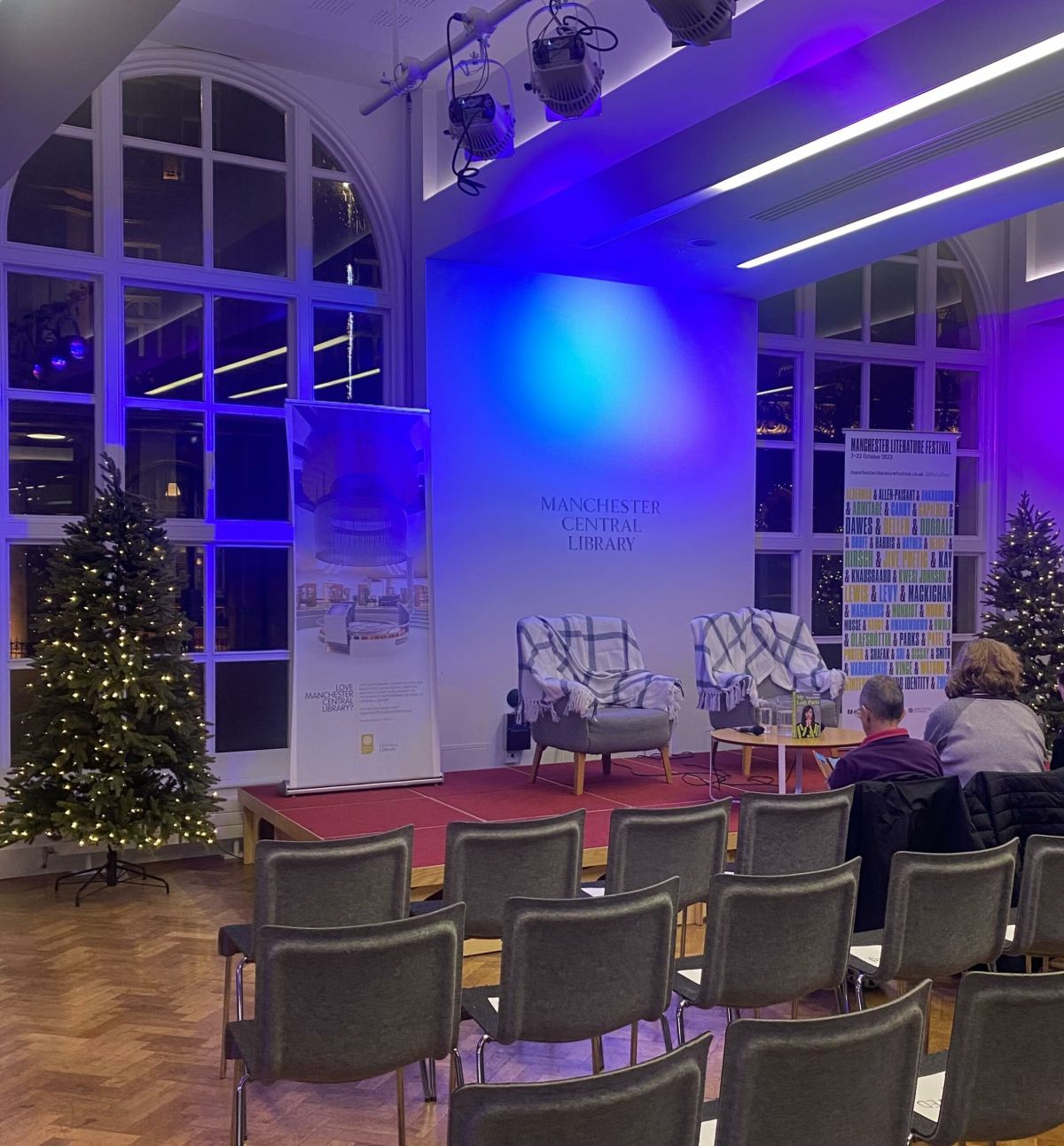Doon Mackichan talks acting, feminism and life lessons at Manchester Literature Festival
By Megan Bailey

Amongst the incredible lineup of writers and artists taking part in the Manchester Literature Festival this year, Doon Mackichan took to the stage at Manchester Central Library on Monday. Her recently released memoir, My Lady Parts, candidly confronts the highs and lows of her life.
Trigger Warning: Mentions of gendered violence and assault
Structurally, the memoir tackles moments in Mackichan’s life by categorising them into stereotypical women we see on the big screen – the ‘stupid tart’, ‘hot lesbian’, and ‘nice mum’. Readers can expect to be immersed in the most intimate of experiences: sexism on film sets, having a young son with Leukaemia, but above all else – remaining resilient throughout everything. Mackichan is witty, frank, and completely unwavering – but what she does best is she truly cares about the world and those in it.
Her appearance in Manchester felt personal – as she said herself, she credits being where she is partly to Manchester and the University, which she attended. In conversation with host Katie Popperwell, Mackichan interacted with the audience casually: making jokes, asking questions and reminding us all of how down-to-earth she remains even after her great successes. She recalled her UoM days studying drama, and how much of her spirit can be attributed to the establishment’s encouragement of activism and individuality during the 80s when she was a student there.
My Lady Parts is split into chapters all headed by a different archetype of women so often portrayed through popular media. Mackichan explained it like this: “If it’s a strong character it would be ‘surprisingly attractive for such a strong woman,’ that kind of breakdown.” Mackichan described her desire to see more messy women on our screens, reminding me in the audience of Phoebe Waller-Bridge and her genius portrayal of her own character in the BBC series Fleabag. Women are, in Mackichan’s words, repeatedly only given a few speaking parts yet told that their role holds great merit and importance to the overall production. This reduction of women to their duties as mothers, sisters, girlfriends, and so on acts as a vehicle for plot development, yet forgets to give them any real personality besides the typical ‘womanly’ traits many men expect or want to see.
This is especially relevant in the acting industry. Mackichan has been very vocal about the sexism she has both witnessed and been subject to herself, even naming some men she recalls as being problematic. During her talk, she explained that audiences should be wary of the reality of nude scenes, which are often coercive and unethical in nature. She continued that this was especially true of nudity in violent contexts – “We love true crime in this country,” she remarked, referring to the popularisation of thrillers and crime TV. However, she warned that the grotesque mutilation of women’s bodies on our screens can become dangerous, amplifying the fixation of women as victims of sexual and violent crimes in reality too.
Discrimination of women in the workplace is ever-present and, though there are more women in positions of power than there once was, Mackichan reflected that these women are still subject to sexism from their male peers. She discussed how her own pregnancy resulted in a dismissal from her part in a theatre production. But, undeterred, Mackichan insisted that this was unjust, and advocated for change: “I don’t know where I get it from,” she added, referring to her refusal to stand silent against injustice.
Amongst all of these trials that she has faced, Mackichan also discusses in her memoir the illness of her son who was diagnosed with Leukaemia at just nine years old. She told audiences of the sheer bravery of children facing cancer, who ‘don’t complain’ and just get on with things, despite the gruelling reality of treatment and a childhood much different from other children. Today, Mackichan is able to celebrate the life of her son, who is now age 28.
There is something truly inspiring about My Lady Parts. Reading it feels so deeply familiar to women and girls who have endured the throes of misogyny many times in their lives. Mackichan almost adopts the role of a confidant, a friend, and an advisor. She acknowledges the difficulty in speaking out, where “anger can be really hard,” but says that it is important for both men and women to challenge the little things in our day-to-day lives.
It comes as no surprise then, that Mackichan has become the actress, writer, comedian, and activist that she is. She has achieved a myriad of accomplishments such as her double-Emmy-award-winning show Smack the Pony, as well as nominations at the 2014 British Academy Television Awards for Best Female Comedy Performance in the TV show Plebs.
Doon Mackichan’s talk as part of the Manchester Literature Festival was both refreshing and an opportunity to consider our own responses to what life throws our way – in this regard, Mackichan is a great role model. Her work has had a profound impact on the arts and on feminism, and her want for change is something that we can all aspire to. As for her memoir, My Lady Parts is a universal must-read and something I know will stay with me for years to come.







